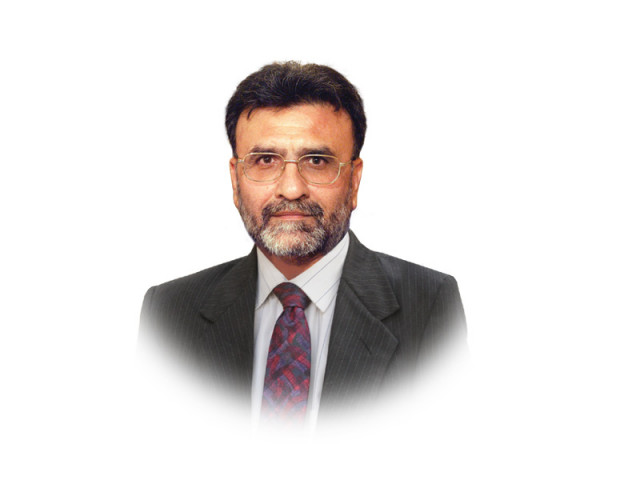Riveting fights in Senate overshadow NA
The morning after viciously contested by-elections, the NA looked doubly morose and yawn inducing Friday.

Khurran Dastgir Khan, a state minister, was present in the house to take questions on issues primarily related to government’s dealings with big business groups. Hardly a person from opposition benches appeared to have studiously combed the written and detailed answers to some tricky questions. No one checked him by pointing out the devil hidden in details. The bulky Khan rather marched through the question hour like a victor. Don’t blame reporters, therefore, if most of them preferred moving to the senate. Raza Rabbani, a PPP veteran, keeps shining in his fighting-best there.
Since formation of the third Nawaz government, Raza has been trying hard to articulate the story that notwithstanding its zeal of a neo-convert when it comes to democracy and love for constitutionalism, the PML-N remains a cabal of crony capitalists. To sate their authoritarian cravings, its leaders are sneakily trying to revive a strong centre. Thanks to the obsession to command and control everything from Islamabad, we had first alienated the Bengalis in the 1960s and later produced a strong sense of alienation amongst people living in smaller provinces.
Raza Rabbani was head of a parliamentary committee, representing all parties presented in both houses of parliament in previous five years. The said committee worked with admirable patience for many months to develop consensus for inducting clear and commanding clauses in our constitution to ensure maximum provincial autonomy. The structures of governance in Pakistan surely look radically different since enforcement of the 18th amendment, but our civil and military oligarchs do not feel good about it. Many wizards of fiscal management, working as mercenary consultants for multinational donor agencies, fully endorse the elitist apprehensions. They keep writing data-driven stories of doom and gloom, in case the 18th amendment was implemented in letter and spirit.
In the name of addressing the crisis of crippling load-shedding in one go, the Nawaz government made some dubious attempts to bypass the limits set by the 18th amendment. The PPP-dominated senate called its bluff, however. Senators from the ANP and the MQM remain equally vigilant and noisy in this regard and most ministers certainly hate going to the senate sittings for the fear of them.
Senator Mushahidullah of the PML-N is a loose cannon, though. Although yet not made a minister, he continues to act like a loudmouth to defend his party by being easily available to TV talk shows 24/7. Friday he tried his luck in the senate as well by deliriously shouting at Raza Rabbani, who was simply pressing the government to explain how it would ensure that the youth from smaller provinces get government jobs due to strict execution of quota duly allocated under constitutional provisions in this respect.
Riaz Peerzada, the relevant minister, failed to satisfy the opposition. When the minister refused to oblige in simple words, the opposition forcefully demanded that its question should be sent to the privileges’ committee to force the minister to come to its meeting with a satisfactory answer. The government did not like this procedural remedy. Its senators rather opted to embarrass Sabir Baloch, the deputy chairman. By describing him as opposition-friendly, the ministers and their friends began bullying Sabir Baloch and Mushahidullah assumed the leading role to mount pressure on the chair. In the heat of arguments, he eventually switched his feverish ire towards Raza Rabbani.
Senator Mushahidullah had developed his muscles and lungs of a bully while working for a Jamaat-e-Islami-connected trade union in the late 1970s. But he forgot that Raza was made of street-hardened stuff as well. He retaliated with equal vigour and cutting across the party divide, many senators felt forced to stand like a wall to prevent a physical fight between the two.
The scene in the senate might have looked ‘ugly’ to sophisticated eyes, but it truly displayed the growing tensions, not between the two mainstream parties only. Two clearly defined and explosively different ideas of governance are rather fighting the do or die battles in the senate these days. And, this makes the business in the upper house of parliament far more riveting than the drab doings that we see in the national assembly.
Published in The Express Tribune, August 24th, 2013.

1724319076-0/Untitled-design-(5)1724319076-0-208x130.webp)

















COMMENTS
Comments are moderated and generally will be posted if they are on-topic and not abusive.
For more information, please see our Comments FAQ